Celebrating Plants and People
-
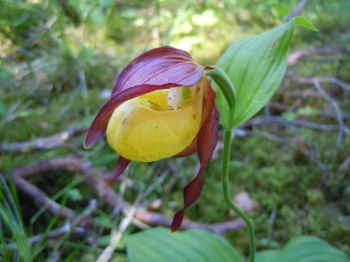
When Times Get Tough Plants May Simply Go To Sleep….For Decades
Dormancy in seeds has been widely known about and studied for decades but the phenomenon of dormancy within plants that have left the seed stage behind and embarked upon adult life is far less well-known and understood. (Click on title for full story.)
-
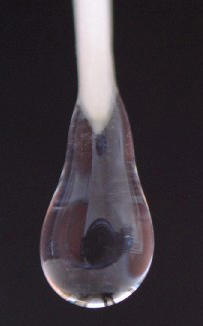
Plant Roots Alter The Soil To Suit Their Needs
During the growing season–and beyond–there are delicate interactions between each plant and the surrounding soil. All of these interactions affect the amount of water that is captured by soil and absorbed by plants. Production of exudates also affects how well the plants can pull vital nutrients out of the soil, and even affects the soil…
-
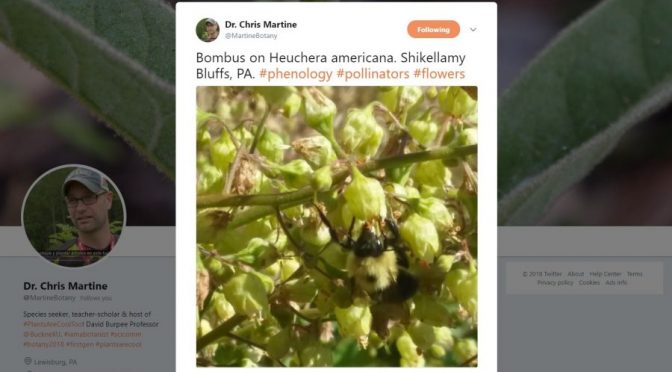
The Endangered Plant Rediscovered On Twitter
Posting an image of this find on Twitter, little did Martine (@MartineBotany) know that one casual Tweet of a bumblebee on what he thought was Heuchera americana would not only stir a heated discussion among fellow botanists, but also lead to the unexpected-for-this-region record of the rare and globally imperiled Appalachian endemic Heuchera alba. (Click on title for full…
-
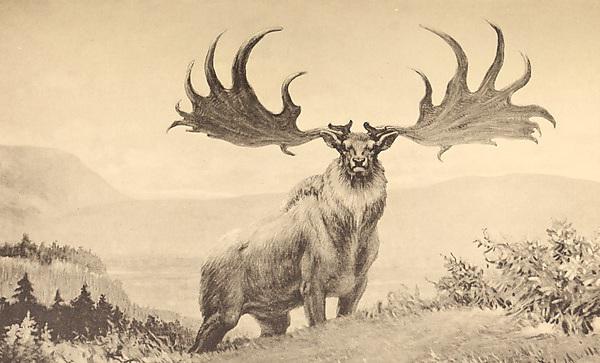
Last Great Extinction: Did Megafauna Stifle The Plants Or Did Plants Overwhelm The Megafauna?
Plants may have exerted greater influence on our terrestrial ecosystems than the megaherbivores that used to roam our landscapes, according to new research. Previously, scientists believed that the Late Quaternary extinction event that took place between ~ 11,000 and 15,000 years ago across much of northern Europe, played a significant role in the subsequent expansion…
-
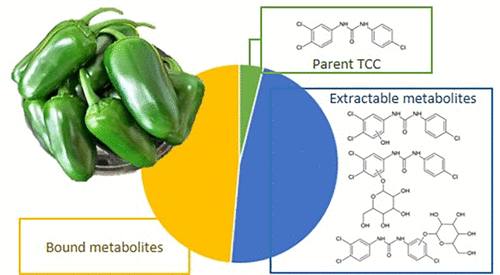
Antibiotics That Get Into The Water Supply Could End Up In Our Food
To track the antibiotic’s journey from water to pepper, the researchers labeled TCC with radioactive carbon (C14). They grew the pepper plants hydroponically and, after 12 weeks, sampled the C14 content in the roots, stems, leaves and fruit. While the pepper fruit itself had relatively low levels of TCC, it contained a hefty portion of…
-
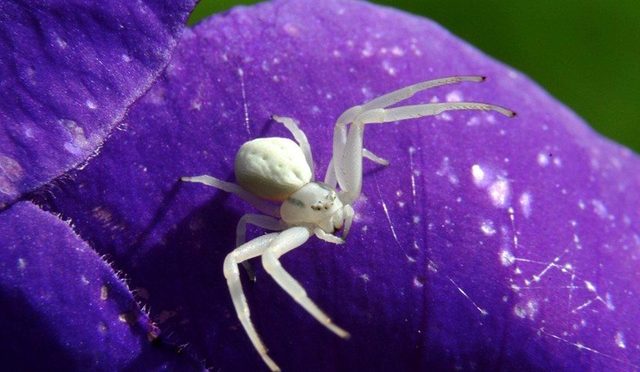
Spiders Discovered To Act As Defenders Of Plants
Studying the interaction between the spiders and the buckler-mustard (a yellow flowering plant common in Europe), the researchers came to an even more surprising conclusion: the plant itself can send out a “cry for help” when heavily attacked by florivores (flower-feeding herbivores). (Click on title for full story)
-
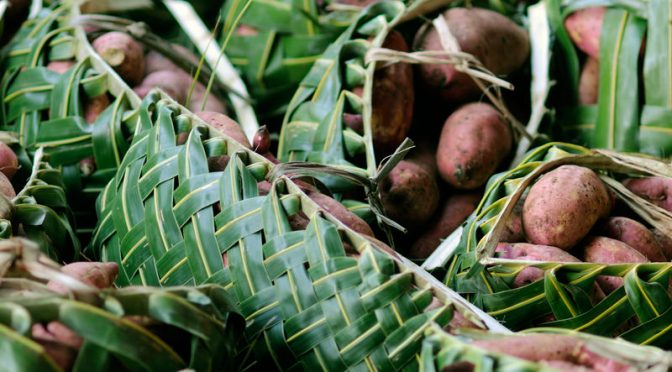
Mystery: South American Sweet Potatoes Arrived In Polynesia Before Humans Did
“This paper shows sweet potatoes were already in Polynesia when the islands were first colonized by humans thousands of years ago,” says Lars Fehren-Schmitz, a paleogeneticist at the University of California, Santa Cruz. “But it can’t prove there was no contact between Polynesians and South Americans before Europeans arrived.” (Click on title for full story.)
-
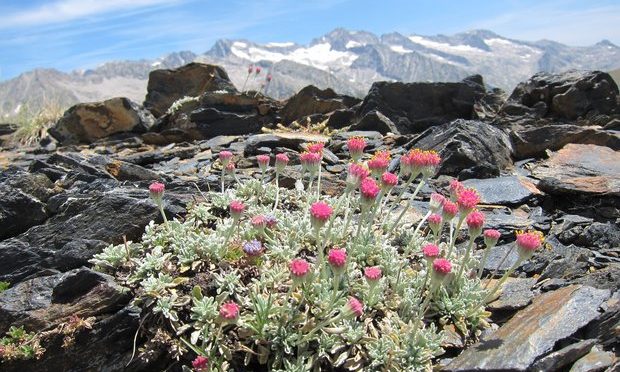
The Greening Of Mountain Tops Due To Climate Change
A large international research team has not only ascertained a considerable increase in the number of plant species on 302 European mountain peaks over the past 150 years; they have also found that this increase is accelerating. Moreover, it is certain that this development is linked to rises in temperatures; changes in precipitation and nitrogen…
-
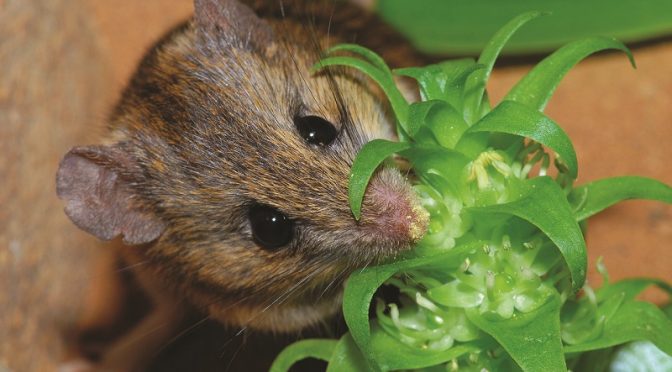
Pollinators Are Not Only Insects: The Importance Of Vertebrate Pollinators
Although less familiar as flower visitors than insect pollinators, vertebrate pollinators are more likely to have co-evolved tight relationships of high value to the plants they service, supplying essential reproductive aid for which few or no other species may substitute. In plants known to receive flower visitations from vertebrates, fruit and seed production drops 63…
-
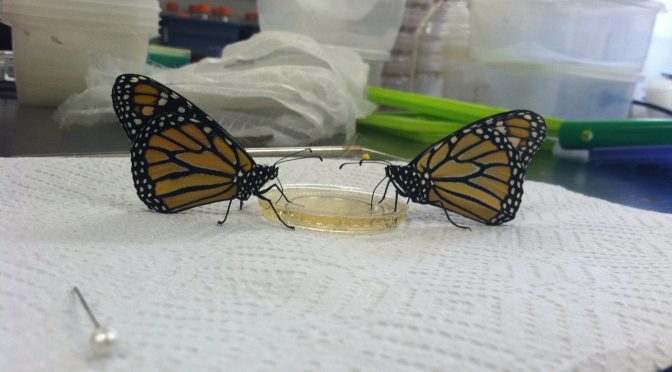
Will Climate Change Transform An Invasive Milkweed Into Monarch Butterflies’ Enemy?
In essence, with climate change, too much of a good thing becomes a bad thing, specifically when it comes to the tropical milkweed plant. The native A. incarnata milkweed naturally produces fewer toxic chemicals than the tropical milkweed, but warmer conditions don’t radically change these levels. Under conditions of global warming, monarchs feeding on the…
